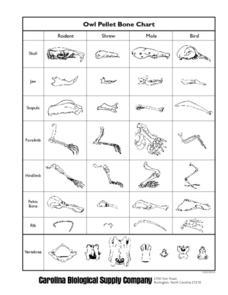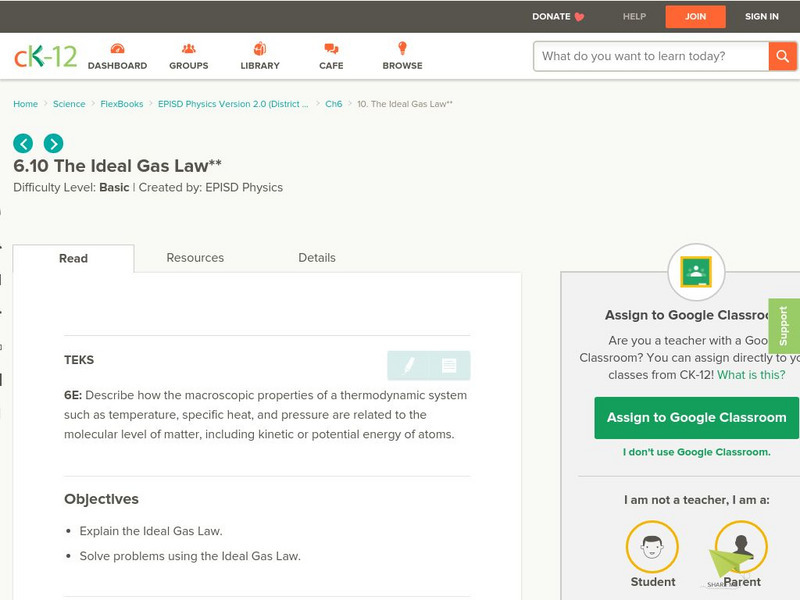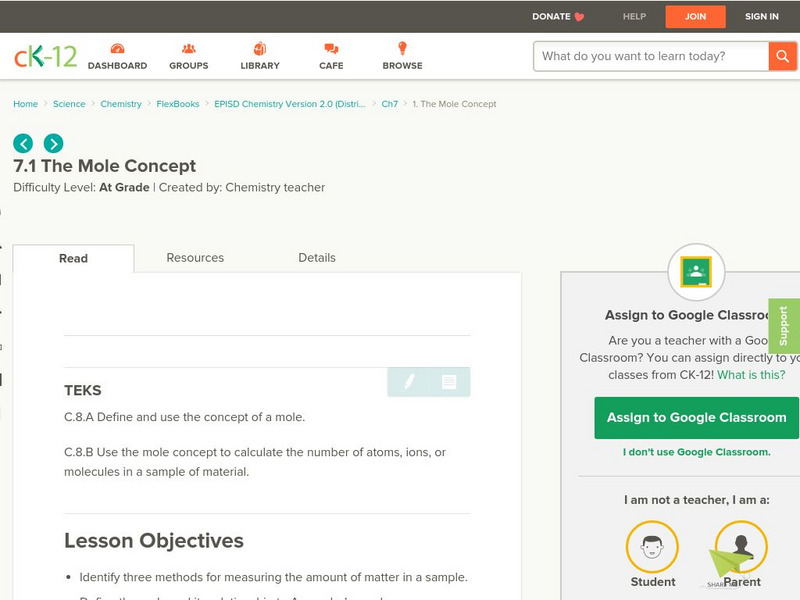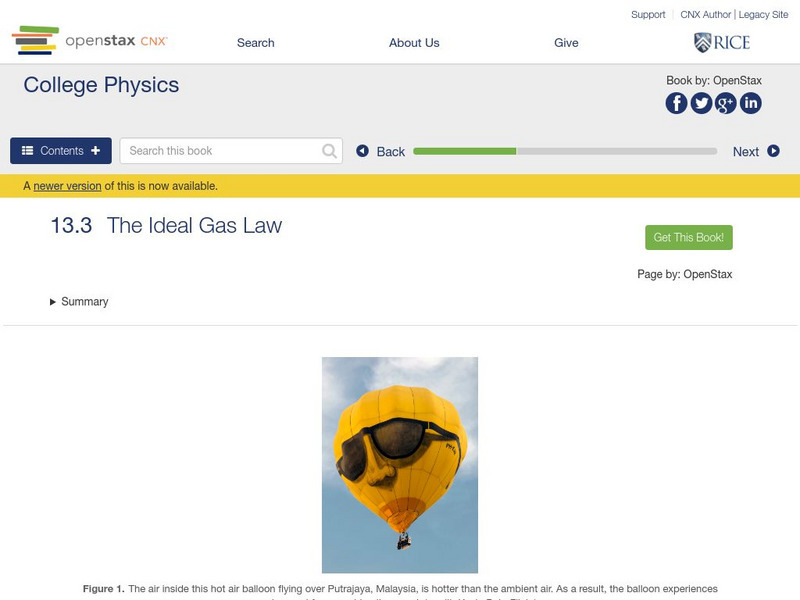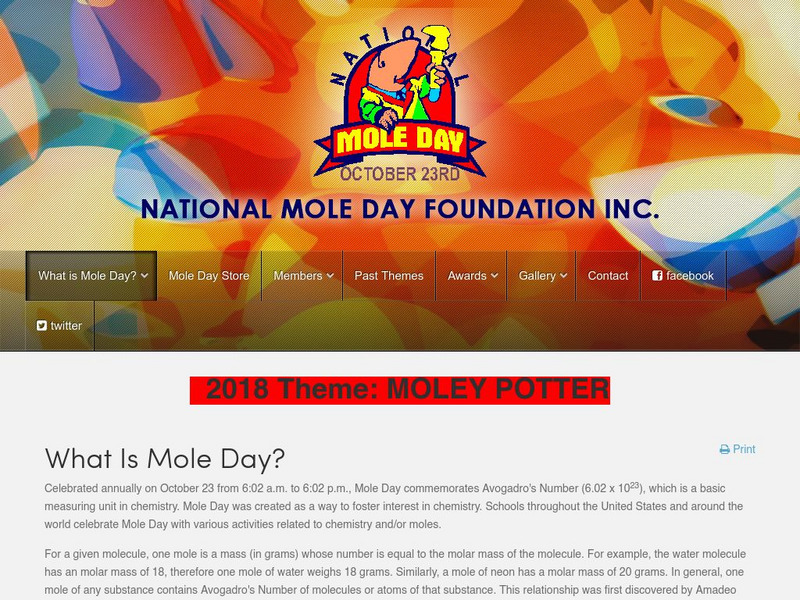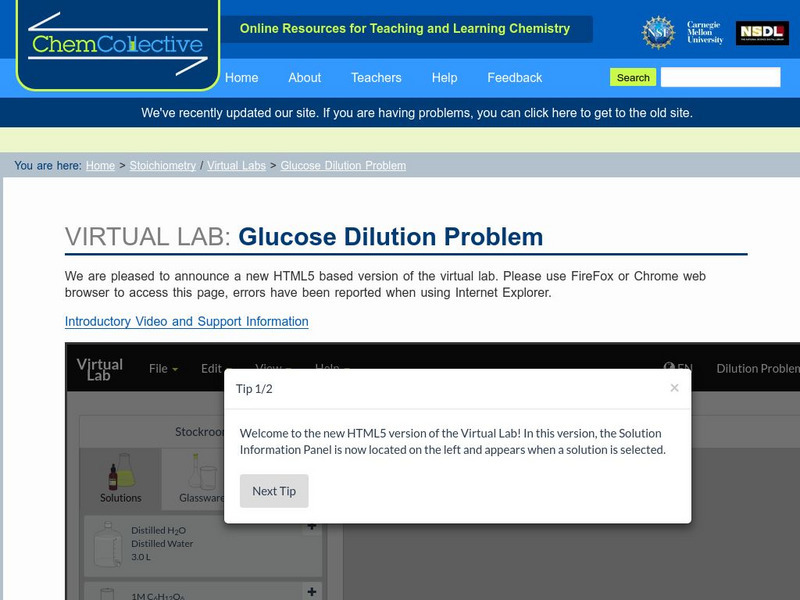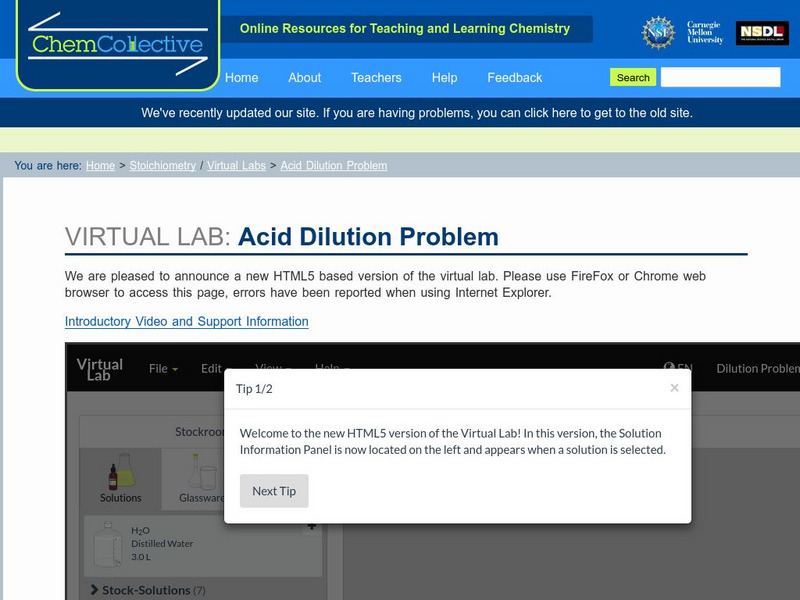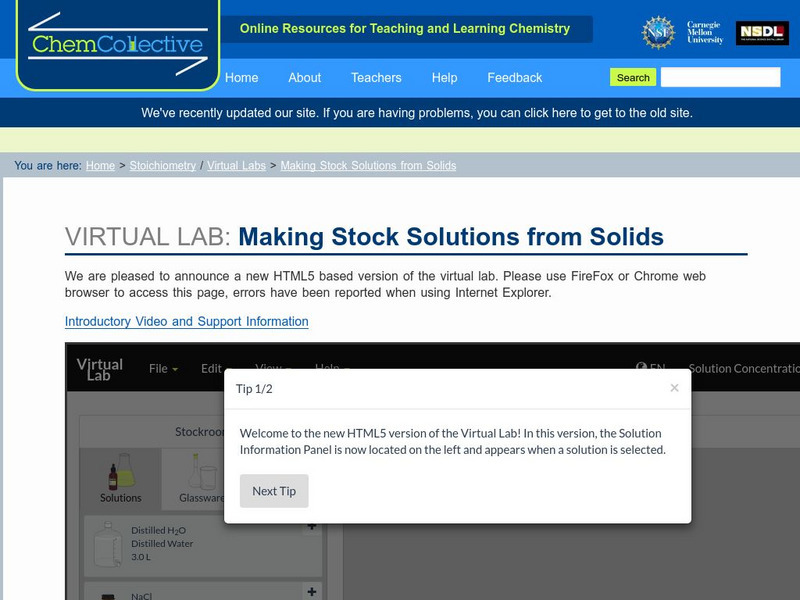Curated OER
Ammonium Nitrate - Is it worth the Risk?
Students consider that ammonium nitrate is used as a fertilizer and an explosive. They study the chemistry of ammonium nitrate and consider the advantages and disadvantages of this compound. The dual nature of Ammonium Nitrate was...
Curated OER
Teaching Avogadro's Number
High schoolers design an experiment to determine Avogadro's number. Students utilize an ammeter, an electrolytic cell and internet research.
Curated OER
The Connection Between Pigment and Light Colors
Young scholars explain the mole concept and use this concept to prepare chemical solutions of particular molarities.
Curated OER
Units in Thermochemical Calculations
Students study how to complete thermochemical equations. In this equation lesson students learn how to manipulate equations to calculate energy changes and reactions.
Curated OER
The Enthalpy of Chemical Change
In this chemical change worksheet, learners review enthalpy and use Hess's law to calculate enthalpy and the heat of reaction for given reactions. This worksheet has 3 problems to solve.
Curated OER
First Ionisation Energies in Group II and Period 3
In this ionisation worksheet, students complete 2 graphic organizers by filling in the proton number for given elements. Then students create 2 graphs plotting first ionisation energy against the proton number.
Curated OER
Owl Pellet Bone Chart
For this biology worksheet, students identify and label the various bones of a rodent, shrew, mole, and a bird. There are a total of eight bones for each to name on the sheet.
Curated OER
Ammonium Nitrate - Heat of Solution
Students quantify the relationship between temperature, energy and heat
and define an endothermic reaction. They measure the energy change caused by dissolving one mole of ammonium nitrate in water.
Other
Bipm: The International System of Units (Si)
BIPM (Bureau International des Poids et Mesures) is an international organization, located in France, an equivalent of our National Institute of Standards and Technology (NIST). This site is the BIPM intro page to their official...
Frostburg State University
General Chemistry Online: The Mole Concept
Resource provides notes on Moles and Stoichiometry. Deals with all book-keeping aspects, including as section on yields and limiting reactants. Includes lesson plans, lecture slides and notes, links to related websites, and frequently...
CK-12 Foundation
Ck 12: The Ideal Gas Law
[Free Registration/Login may be required to access all resource tools.] Students read about and explore video clips, diagrams, and example problems using the Ideal Gas Law.
CK-12 Foundation
Ck 12: The Mole Concept
[Free Registration/Login may be required to access all resource tools.] In the following online tutorial students will identify three methods for measuring the amount of matter in a sample. They will define the mole and its relationship...
CK-12 Foundation
Ck 12: Solubility Equilibrium
[Free Registration/Login may be required to access all resource tools.] Students write the solubility product constant expressions for nearly insoluble ionic compounds and perform calculations for compounds and solubility.
CK-12 Foundation
Ck 12: Flex Book Textbooks: Chemistry Second Edition
[Free Registration/Login may be required to access all resource tools.] A complete, web-based, multi-media textbook covering a wide variety of Chemistry concepts.
Georgia Department of Education
Ga Virtual Learning: Ap Chemistry: Stoichiometry
Students apply new knowledge of the elements to name and write chemical formulas, write and balance chemical equations, and perform mathematical calculations about the relationships between those chemicals, using a fundamental unit in...
OpenStax
Open Stax: College Physics: The Ideal Gas Law
A section in a college textbook exploring the ideal gas law in relation to molecules and in terms of moles. Learn how to calculate the variables in the ideal gas law. Also become familiar with Avogadro's number and how to use it to...
Carnegie Mellon University
Chem Collective: Stoichiometry Bridge Course
This is a complete course in chemical stoichiometry, set in a scenario that shows how stoichiometry calculations are used in real-world situations. This course has been designed to not only help you strengthen your skills with...
Other
National Mole Day Foundation: Mole Day
This is the official site for Mole Day. It contains many links, a definition, and the official mole pledge.
Chemistry Collective
Chem Collective: Creating a Stock Solution
In this activity, students use the virtual lab to create dilute solutions from a concentrated stock solution of acids or bases. They must first calculate the correct volumes of concentrated acid solution and water to mix together to...
Chemistry Collective
Chem Collective: Glucose Dilution Problem
In this activity, students use the virtual lab to create a 0.025M glucose solution from a standard 1M glucose solution. First, they calculate the correct volumes of 1M glucose solution and water to mix together to create the final 0.025M...
Chemistry Collective
Chem Collective: Acid Dilution Problem
In this activity, students use the virtual lab to create 500mL of 3M HCl solution from a concentrated stock solution of 11.6M HCl. They must first calculate the correct volumes of 11.6M HCl solution and water to mix together to create...
Chemistry Collective
Chem Collective: Making Stock Solutions From Solids
In this activity, students use the virtual lab to create stock solutions starting from solid salts. Students must first calculate the correct amount of solid to make the solution. Next, they prepare the solution using the appropriate...
Texas Education Agency
Texas Gateway: The Ideal Gas Law
Explore the thermal behavior of gases, in particular, examine the characteristics of atoms and molecules that compose gases. Learn about the ideal law of gases in terms of molecules and moles. Multiple formulas and examples are provided.
TED Talks
Ted: Ted Ed: How Big Is a Mole? (Not the Animal, the Other One.)
Video describes how moles are used in chemistry and how their size is measured. [4:33] Followed by a short quiz and a list of additional resources to explore.








